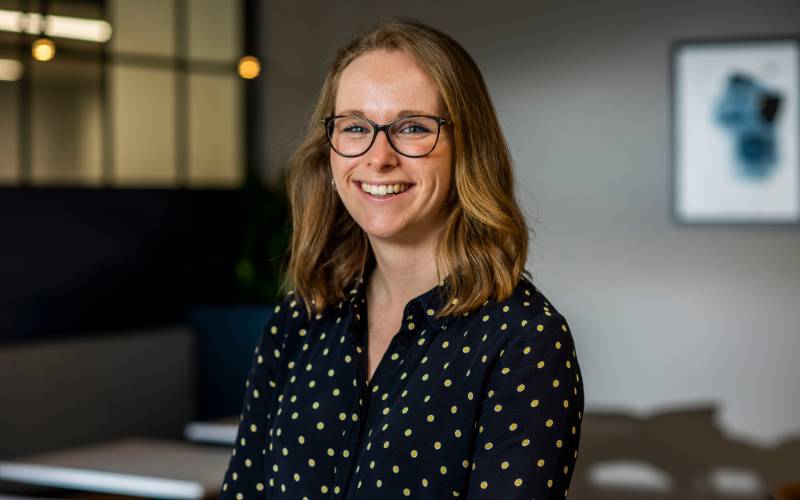Empowering through inclusion: the impact of diverse identities in the workplace
Interviews
Harriet Compton, Financial Advisor at St. James's Place, spoke to myGwork about the most efficient ways to support and empower people from diverse and intersectional identities.
Please introduce yourself and your role within your organization
My name’s Harriet, and I’m a financial adviser at Lansdown Place Wealth Management, which is a part of SJP. I work with my clients to help them make great financial decisions. I help people make sure they are financially resilient while shaping and planning the futures that they desire.

Here are Top 5 ways we can support and empower individuals from diverse intersectional identities in the workplace and promote inclusivity:
Listen – speak to those people with diverse identities who are already in the organisation. Ask them what they would like to see change and listen to what they say.
Represent – give those people opportunities and platforms to be visible, if they are comfortable to do so. For example, getting them to present at meetings, or to attend external events.
Allyship – encourage others to be allies to support those minority identities.
Support from the top – senior leaders should be involved with supporting the groups and getting involved with ally-ship. This feeds down into the culture of the organisation.
Create a safe space – if there are any issues, or any unacceptable behaviour, there should be a clear route to address it. Noone should ever feel uncomfortable calling out something which is problematic.
I’ve had an incredibly easy journey, and I’m very grateful for that. I built up ‘coming out’ as a huge mountain in my head. When I finally told my colleagues that I was in a relationship with a woman, the reaction was, frankly, underwhelming; no one really batted an eye lid! This is exactly how it should be, and it gives credit to the supportive environment that I am lucky to be part of. People always say that once you come out, you end up coming out every day of your life. I’ve absolutely found this to be true, and it was quite daunting initially. However, I’ve never had any negative reactions, so it soon became easy and second nature.
In what ways do you believe your intersectional identities shape your experiences within the workplace?
It’s given me opportunities which I wouldn’t have had otherwise! For example, I’ve been invited to speak on podcasts, webinars, and contribute to articles (such as this). This has been a great experience. It’s also broadened my network, within work and outside of it. I’ve found the LGBTQ+ community to be hugely welcoming and supportive, which if lovely to be part of.
How do you navigate and address the distinctive challenges that arise? Share some of the personal successes or achievements that you take pride in as a professional with diverse intersectional identities.
I would say that my biggest challenge was overcoming my internal worries and reservations. I thought that coming out would be a huge issue and problematic in many areas of life; however, that just hasn’t been my experience. I think that the worry I had built up is partly because we tend to only hear the bad stories about coming out. I think the positive stories are just as important to share as it is encouraging, and helps others have the confidence to be their true selves in their professional and personal lives.
Personally, coming out has helped me build up my confidence in all areas of my life. I know that if I do meet someone who doesn’t want to work with me due to my sexuality, then I probably don’t want to work with them either. This ability to say no rather than be a ‘people pleaser’ is an empowering skill!
How do your various intersectional identities impact your professional journey, and how do you leverage these aspects of yourself?
As part of my role as a financial adviser, a key thing is about building trust with my clients. A great way to help build trust is by sharing things about yourself too – it makes the client feel more comfortable to share their owns stories. Being able to share that I’m part of the LGBTQ+ community helps my clients to open up and helps to build that trust. I attend LGBTQ+ networking groups where I can meet interesting people that I wouldn’t otherwise cross paths with. I’ve enjoyed using these opportunities to meet new potential clients who I already share some common ground with, and therefore start from a place of in-built trust.

